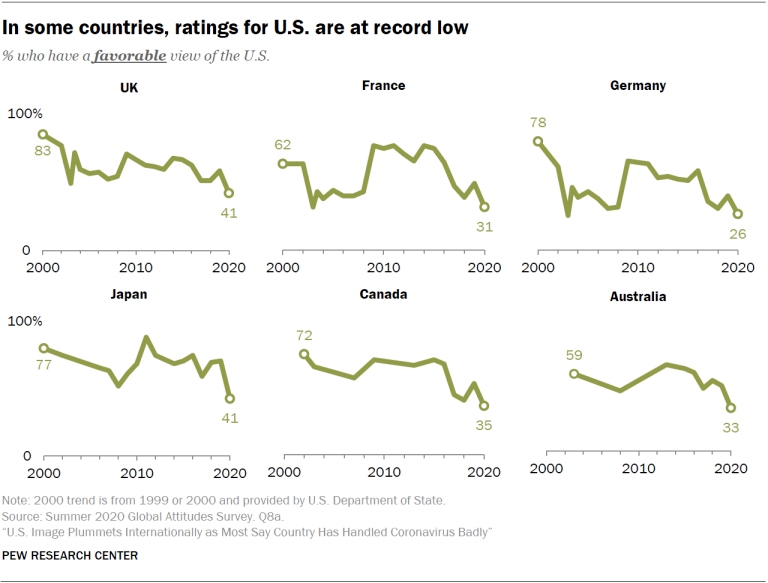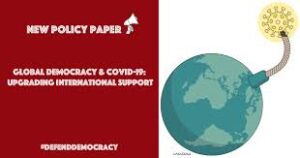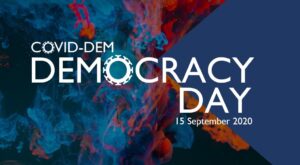The Deadliest Year In the History of U.S. Drug Use
By
While over 300,000 Americans and counting have died from COVID-19 since the beginning of the pandemic, another public-health disaster is taking more lives than ever before: drug overdoses.
Overdose deaths in 2019 were significantly higher than 2018, jumping from 67,367 deaths in 2018 to 70,630 overdose deaths in 2019, marking a nearly 5 percent increase, according to a new report issued Tuesday by the Centers for Disease Control and Prevention. If that’s not grim enough, a separate health alert published by the CDC this week reports a “concerning acceleration” in overdose deaths for 2020, which provisional data show is on track to be the deadliest year for U.S. drug overdose deaths in recorded history. Complete data for 2020 is not expected to be available until some time next year.
The CDC estimates that 81,230 drug overdose deaths occurred from June 2019 to May 2020. The largest overdose spike happened from March to May of this year, which coincides with the beginning of the pandemic when the economy collapsed, lockdowns were imposed and “social distancing” became a new way of life. In addition to unemployment and financial precarity driving up despair, public-health experts have also suggested that isolation during the pandemic has led more people to use drugs alone with no one around to revive them or call 911 if they overdose.
“I’m horrified by the increases across the board,” Dr. Kim Sue, a physician-anthropologist who studies addiction at Yale University’s School of Medicine, told Intelligencer. “Even before the pandemic, the U.S. was going in the wrong direction.”
Illicit fentanyl, an Über-potent opioid manufactured around the world in clandestine labs and used to adulterate heroin, is largely responsible for the soaring death rate, according to the CDC. While illicit fentanyl used to be concentrated in New England, it has rapidly spread across the Midwest and in recent years has made its way to the West Coast. In San Francisco, more people have died this year from overdoses than from COVID-19. In 2019, the city saw 441 overdose deaths compared to 621 so far this year, a 40 percent jump. Across the country, deaths are also steeply rising from stimulants like cocaine and methamphetamine, the CDC found, and many deaths involve a combination of different kinds of drugs, not just opioids.
America’s overdose crisis is proving to be a dynamic and ever-changing phenomenon that experts say has played out in three waves. The first wave began in the early 2000s and mainly comprised deaths from opioid pain relievers like oxycodone. After a crackdown on prescription pills, people flocked to a ballooning heroin market as pills became scarce and expensive. The third and much more deadly wave that sent the overdose rate soaring was driven primarily by powerful illicit fentanyl analogues that began to be used in heroin.
Now the U.S. may be entering a fourth wave, or something more like a tsunami. Illicit fentanyl and stimulants such as meth and cocaine now account for the bulk of overdose deaths. From 2012 through 2019, the rate of overdose deaths involving cocaine increased more than three-fold, and stimulants like methamphetamine increased more than six-fold, according to the CDC. Trends in stimulant overdoses are also on track to worsen during 2020. Deaths involving cocaine increased by 26.5 percent from June 2019 to May 2020, while deaths involving stimulants such as meth increased by 34.8 percent during the same period.
President Trump took credit in 2018 for a meager decline in overdose deaths, but they have skyrocketed even as the federal government made $3.4 billion available to states to fund addiction-treatment services and purchase the opioid-overdose-reversal drug, naloxone. A new report by the Government Accountability Office shows why that funding has made little impact: Over $1 billion in federal grant money meant for the opioid crisis has yet to be spent by states. Addiction experts cite burdensome bureaucracy, needless paperwork, and poor use of existing treatment infrastructure as reasons why so much federal money that was earmarked for the overdose crisis remains unused. “Bureaucracy is literally killing people,” Robert Ashford, an addiction researcher who studies recovery, tweeted. The latest pandemic-relief package contains another sizable investment in mental-health and addiction services. Experts also lament that federal grant money specifically intended for the treatment of opioid-use disorders wasn’t available to people who needed treatment for other substance-use disorders — such as stimulant and alcohol addiction.
Yale’s Sue and many of her colleagues believe that America’s “drug war” approach is outdated and that it has caused more harm than it aims to prevent. Focusing on suing Big Pharma, ramping up trafficking busts, and sending people suffering from addiction to drug courts are “myopic” and “misguided” approaches, Sue said. “We have to innovate and pivot quickly, enacting evidence-based harm-reduction strategies to keep people alive,” she added.
There’s a long list of policies and interventions Sue hopes to see in the near future. “I am heartened to see in the CDC report that drug checking, mobile buprenorphine or telemedicine, wrap-around post-overdose care, and diversion from jail or prison, are critical components of a novel and engaged response,” Sue said, adding she’d also like to see supervised consumption sites and much greater access to effective medications that treat addiction.
Meanwhile, the Biden-Harris administration has yet to select a director for the Office of National Drug Control Policy (ONDCP), a.k.a. the “drug czar,” but whoever takes the job surely faces an uphill climb in their effort to prevent the crisis from getting even worse. If Biden keeps up the trend of hiring from the Obama administration and the Washington drug policy blob, America’s approach to addiction is unlikely to dramatically change anytime soon.
“Why must U.S. drug policy be led by people who continue doing the same thing, putting a square peg in a round hole and expecting improvement?” Sue said.

 Eighty-five percent of people in other wealthy democracies believe the United States handled the coronavirus pandemic poorly.
Eighty-five percent of people in other wealthy democracies believe the United States handled the coronavirus pandemic poorly. “Despite the trillions of dollars the United States has spent on national security in the past two decades, it was not prepared to combat this wholly predictable threat,”
“Despite the trillions of dollars the United States has spent on national security in the past two decades, it was not prepared to combat this wholly predictable threat,” 

